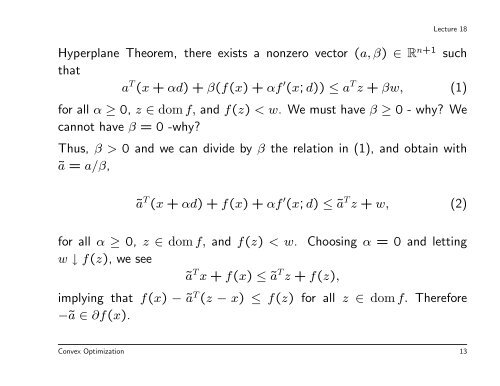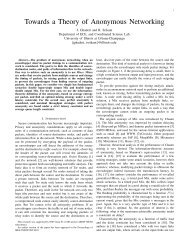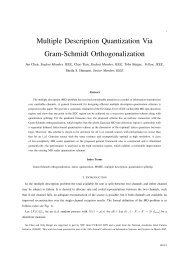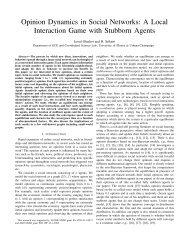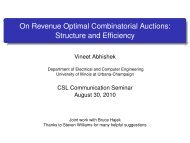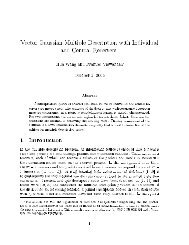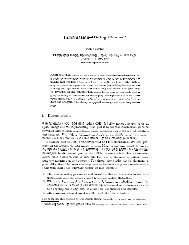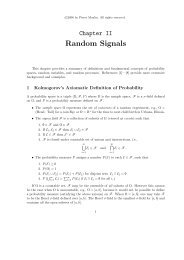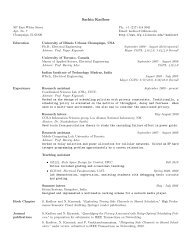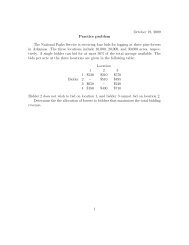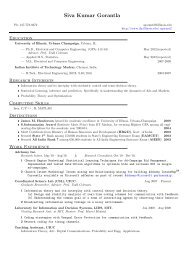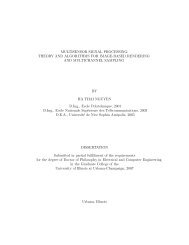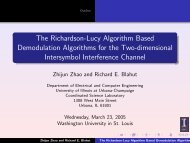Lecture 18 Subgradients
Lecture 18 Subgradients
Lecture 18 Subgradients
Create successful ePaper yourself
Turn your PDF publications into a flip-book with our unique Google optimized e-Paper software.
<strong>Lecture</strong> <strong>18</strong><br />
Hyperplane Theorem, there exists a nonzero vector (a, β) ∈ R n+1 such<br />
that<br />
a T (x + αd) + β(f(x) + αf ′ (x; d)) ≤ a T z + βw, (1)<br />
for all α ≥ 0, z ∈ dom f, and f(z) < w. We must have β ≥ 0 - why? We<br />
cannot have β = 0 -why?<br />
Thus, β > 0 and we can divide by β the relation in (1), and obtain with<br />
ã = a/β,<br />
ã T (x + αd) + f(x) + αf ′ (x; d) ≤ ã T z + w, (2)<br />
for all α ≥ 0, z ∈ dom f, and f(z) < w. Choosing α = 0 and letting<br />
w ↓ f(z), we see<br />
ã T x + f(x) ≤ ã T z + f(z),<br />
implying that f(x) − ã T (z − x) ≤ f(z) for all z ∈ dom f. Therefore<br />
−ã ∈ ∂f(x).<br />
Convex Optimization 13


